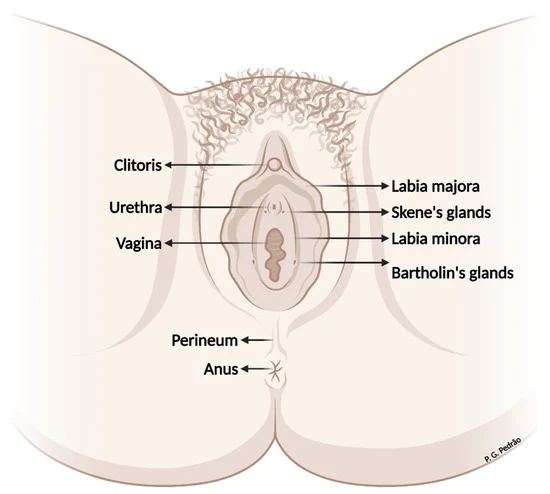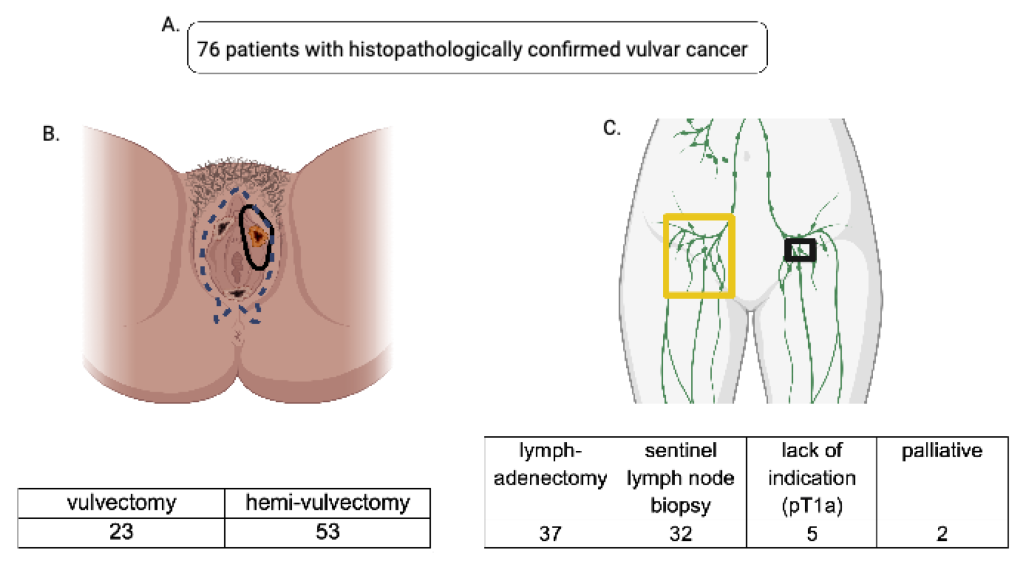
A vulval biopsy means removing a sample of tissue from the vulva. This is the best way to find out whether or not you have vulval cancer or another vulval condition.
Preparing for your vulval biopsy
You usually have this test as a day patient using a local anaesthetic. Rarely, you may have it under a general anaesthetic. This is when you are asleep and don’t feel anything.
Your doctor or nurse will ask you to sign a consent form once they have given you information about the test.
Eating and drinking
You usually have a vulval biopsy under local anaesthetic, so you can eat and drink normally beforehand and afterwards.
Medicines
Take your usual medicines as normal, unless your doctor tells you otherwise. Tell them if you take drugs that thin your blood such as warfarin. Or drugs that stop cells in the blood from sticking together and forming a clot. These are antiplatelets.
You may need to stop taking these drugs for a few days before your biopsy.

What happens during a biopsy?
Before
When you arrive at the department, a staff member asks you to take your lower clothes off. Or you may change into a hospital gown.
Before you have the biopsy, your doctor will explain what happens and you can ask any questions.
During the biopsy
You lie down on your back with your knees up and legs apart. You may be asked to rest your legs on padded leg supports.
Your doctor injects local anaesthetic into the vulva, to numb the area. They then take small samples of tissue.
You may have 1 or 2 stitches afterwards to reduce any bleeding from the area. These are usually dissolvable stitches or you may need to have them removed 5 to 10 days afterwards. Your doctor will let you know what type of stitches they used.
After the test, you have a rest and a drink. The team monitors you afterwards to check for any signs of bleeding. You can then go home.
What happens after a biopsy
Your doctor sends the sample to the laboratory to an expert called a pathologist. They examine the tissue under a microscope. They can work out whether or not you have cancer or abnormal cells. These abnormal cells are called vulval intraepithelial neoplasia (VIN).
If you do have vulval cancer, looking at the cells under the microscope will show which type of vulval cancer it is.
Possible risks
The anaesthetic injection may sting for a short time. You should not feel any pain after this. Do tell your doctor if it feels uncomfortable, they can give you more local anaesthetic.
Afterwards, you may have slight bleeding for a few days. This is nothing to worry about. But do tell your doctor if the bleeding is getting heavy.
You may also have some soreness for a few days. Mild painkillers can help.
There is a small risk of an infection. You should contact the team looking after you if you notice the area becoming more:
- red
- swollen
- painful
Another sign of infection is a discharge from the vulval area.
You will have advice on cleaning the area after passing urine. It may help to pour a cup of cool tap water over the area after weeing. This will help clean the area and reduce any discomfort you may have.

Getting your results
You won’t get any results at the time of the biopsy. Any tissue samples taken are sent to the laboratory to be looked at under the microscope. You should get your results within 1 to 3 weeks.
Waiting for test results can make you anxious. Ask your doctor or nurse how long it will take to get them. Contact the doctor who arranged the test if you haven’t heard anything after a couple of weeks.
You might have the contact details for a specialist nurse. You can contact them for information and support if you need to. It may help to talk to a close friend or relative about how you feel.



